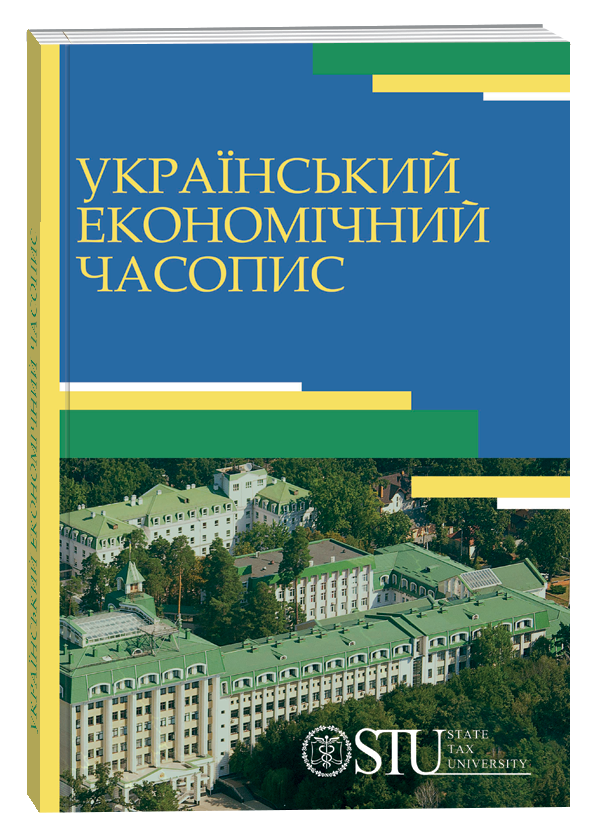BUILDING AN IN-GAME ECONOMY
DOI:
https://doi.org/10.32782/2786-8273/2024-7-1Keywords:
in-game economy, digital analysis, gameplay optimization, tactics of the in-game economy, mechanisms of the in-game economyAbstract
Introduction. The in-game economy is becoming an increasingly important component of successful gaming projects, but many developers face difficulties in managing it effectively. Problems arise from the irregularity and instability of players, the mismatch between in-game prices and real market conditions, and the lack of flexibility in adapting to changes in user behavior. This can lead to a loss of revenue and a decrease in user engagement. The lack of a comprehensive digital analysis in the process of monetization and management of in-game economies makes it difficult to adapt to new market conditions. Purpose. The purpose of this study is to identify the main aspects and process of using digital analysis, outline the basis of the monetization strategy and the stages of developing the in-game economy. To calculate the in-game economy for the mechanic where a player kills mobs, receives gold and XP for them, then spends gold to purchase improved weapons and health potions, and when a certain amount of XP is reached, receives a level increase. Methods. To achieve the goal, the following research methods were used: literature analysis; theoretical generalization; case study; system analysis; abstract and logical thinking; graphical representation. Results. A model of the in-game economy has been developed. It is considered how digital analysis allows predicting changes in player behavior, which has a positive impact on the game's economy. The impact of different monetization strategies on revenues is characterized. Conclusion. The study confirmed that digital analysis is an integral part of building an effective in-game economy. The use of these methods allows creating adaptive models that respond to changes in player behavior and the external environment. Specific suggestions. Developers should implement integrated digital analysis systems to monitor in-game transactions in real time. It is necessary to actively test different monetization models and conduct A/B testing to determine the most effective strategies. Offer players new ways to interact with the in-game economy, such as participating in the development of new items or mechanics, which will increase their engagement.
References
Ranandeh V., Mirza-Babaei P. Beyond Equilibrium: Utilizing AI Agents in Video Game Economy Balancing. CHI PLAY '23: The Annual Symposium on Computer-Human Interaction in Play, Stratford ON Canada. New York, NY, USA, 2023. DOI: https://doi.org/10.1145/3573382.3616092 (дата звернення: 01.11.2024).
Wang Y. Analysis of the Economy System in Games. 2022 7th International Conference on Social Sciences and Economic Development (ICSSED 2022), Wuhan, China, 25–27 March 2022. Paris, France, 2022. DOI: https://doi.org/10.2991/aebmr.k.220405.279 (дата звернення: 01.11.2024).
Rupp F., Eckert K. GEEvo: Game Economy Generation and Balancing with Evolutionary Algorithms. 2024 IEEE Congress on Evolutionary Computation (CEC), Yokohama, Japan, 30 June – 5 July 2024. 2024. P. 1–8. DOI: https://doi.org/10.1109/cec60901.2024.10612054 (дата звернення: 01.11.2024).
Gudmundsson S. The Art of Game Balancing: Keeping Players Hooked and Revenue Flowing. AI Engine for game development. URL: https://modl.ai/the-art-of-game-balancing-keeping-players-hooked-and-revenue-flowing/ (дата звернення: 29.10.2024).
Becker A., Görlich D. What is game balancing? - an examination of concepts. ParadigmPlus. 2020. Vol. 1, no. 1. P. 22–41. DOI: https://doi.org/10.55969/paradigmplus.v1n1a2 (дата звернення: 01.11.2024).
Evans E. The economics of free. Convergence: the international journal of research into new media technologies. 2016. Vol. 22, No. 6. P. 563–580. DOI: https://doi.org/10.1177/1354856514567052 (дата звернення: 01.11.2024).
Using evolutionary algorithms to target complexity levels in game economies / Rogers K. et al. IEEE transactions on games. 2023. P. 1–11. DOI: https://doi.org/10.1109/tg.2023.3238163 (дата звернення: 01.11.2024).
Shumaker J. 押したり引いたり:ゲーム内経済を構築する方法. GamesIndustry. Japan Edition. URL: https://jp.gamesindustry.biz/article/2010/20100801/ (дата звернення: 01.11.2024).



